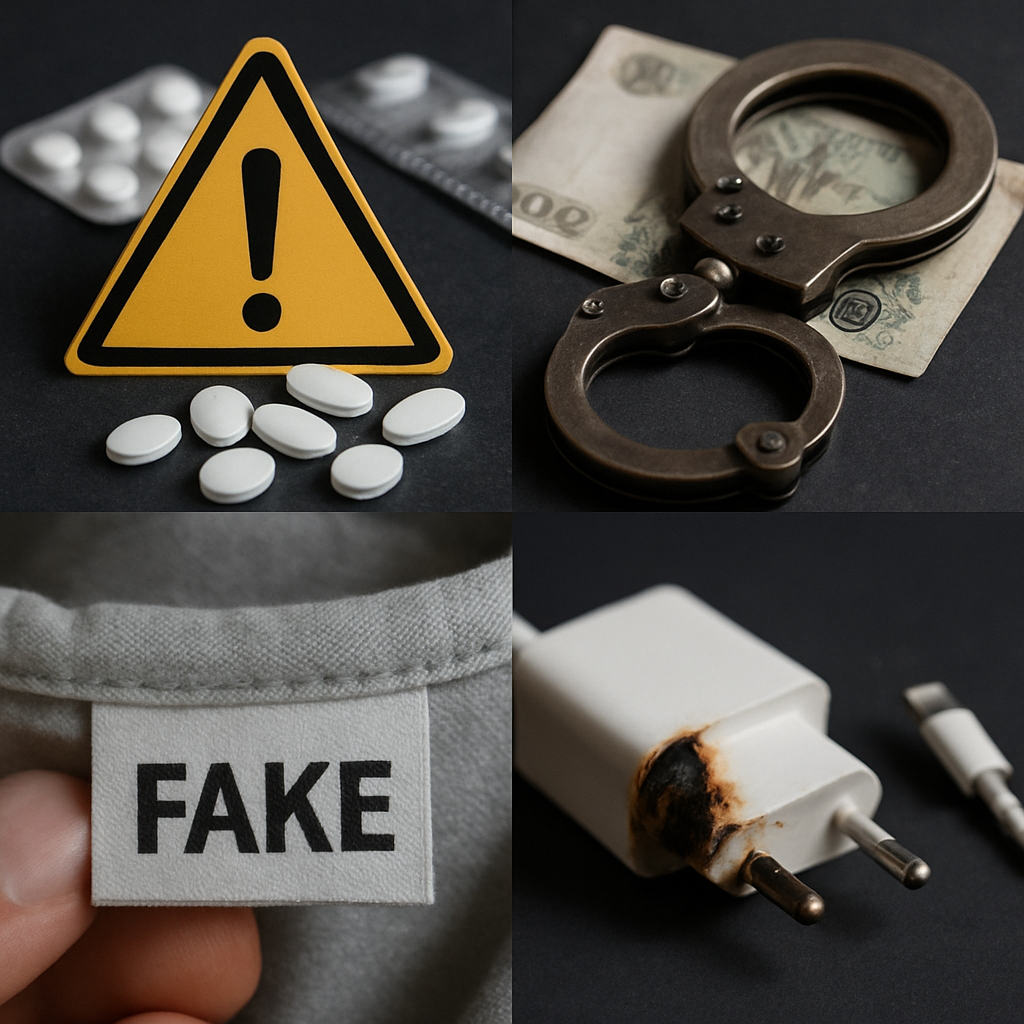In a world driven by online shopping and global supply chains, counterfeit goods have become more prevalent than ever. What may seem like a harmless bargain can carry significant risks—affecting not only your wallet but also your health, safety, and the broader economy.
Health and Safety Risks
Many counterfeit products, especially pharmaceuticals, cosmetics, and electronics, bypass safety regulations. Fake medicines may contain incorrect or dangerous ingredients, while counterfeit cosmetics often include toxic chemicals like lead or mercury. Similarly, counterfeit electronics can overheat, catch fire, or cause electric shocks due to substandard components. Choosing these knock-offs can put your health—and sometimes your life—at risk.
Economic Impact
Counterfeit goods drain billions of dollars from legitimate businesses every year. This erosion of revenue hurts innovation, as companies lose the incentive and resources to invest in research and development. Counterfeiting also undermines jobs, reducing employment opportunities in industries targeted by fake products, from fashion to technology.
Links to Organized Crime
The counterfeit trade is not a victimless crime. Many operations are linked to organized crime networks and even terrorism financing. By purchasing counterfeit goods, consumers may unintentionally support illegal enterprises that traffic in human exploitation, drug smuggling, and other criminal activities.
Consumer Deception and Quality Issues
At first glance, counterfeit goods can appear nearly identical to the real thing. But beneath the surface, quality is often poor. Counterfeit clothing may fall apart after one wash, and fake phone chargers may ruin your device. What looks like a deal often ends up costing more in the long run.
How to Protect Yourself
-
Buy from reputable retailers—Stick to authorized sellers and brand websites.
-
Check labels and packaging—Poor spelling, blurry logos, or unusual packaging are red flags.
-
Be wary of “too good to be true” prices—If the price seems unrealistically low, it probably is.
-
Research the seller—Look for reviews, ratings, and legitimacy before purchasing.
Final Thoughts
Counterfeit goods are more than just cheap imitations—they are dangerous products that threaten safety, weaken economies, and empower criminal networks. By staying informed and vigilant, consumers can protect themselves and help shut down this global problem.
Lee Law combats counterfeit goods to the benefit of not just the company but the public at large. You can email us at contact@leelawservices.com

